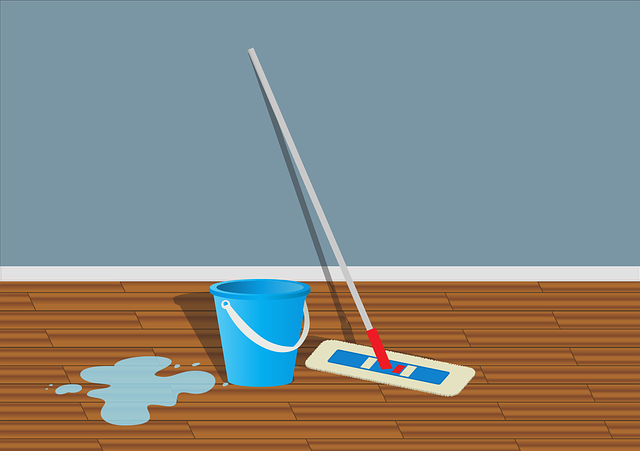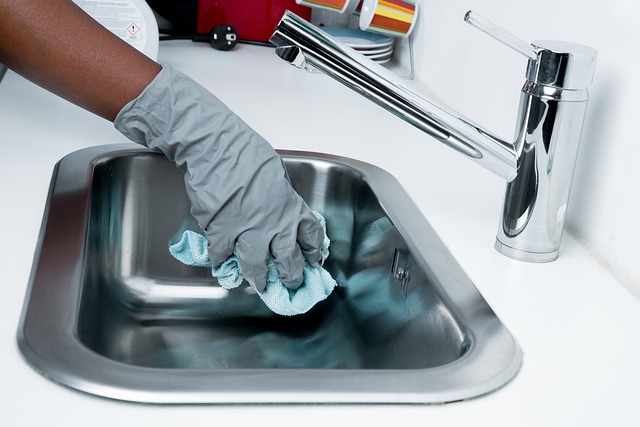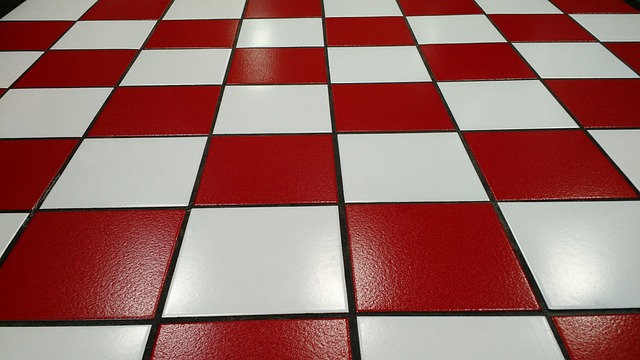Maintaining clean grout involves using natural solutions like baking soda, vinegar, and lemon juice instead of harsh chemicals. Regular cleaning with these ingredients, along with sealing and ventilation, prevents discoloration, mold, and moisture damage. This approach keeps grout looking fresh, promotes a healthier environment, and extends the grout's lifespan.
Tired of seeing dull, discolored grout in your once-stunning tiles? It’s time to embrace the power of organic grout care. This comprehensive guide dives into the essentials of maintaining your grout naturally, addressing common issues and providing effective cleaning agents that go beyond harsh chemicals. From DIY solutions to professional restoration techniques, discover how to restore and protect your grout with natural solutions for a clean, healthy home.
Understanding Organic Grout Care: The Basics

Keeping your grout clean and in good condition is essential, especially as it adds to the overall aesthetic appeal of your tiled spaces. Organic grout care involves employing natural solutions that are both effective and environmentally friendly. Instead of reaching for harsh chemicals, which can damage the grout over time and contribute to environmental pollution, opt for gentle yet powerful cleaning methods.
Natural solutions for cleaning dirty grout include using essential oils, baking soda, vinegar, and plant-based cleaning agents. These organic materials effectively remove grime, mold, and stains without leaving behind toxic residues. Regular wiping with a damp cloth and a natural cleaner can help maintain the grout’s cleanliness. Additionally, sealing the grout after cleaning with a food-safe, non-toxic sealer will protect it from dirt and moisture, ensuring longer-lasting results.
Identifying Common Grout Issues and Their Causes

Identifying Common Grout Issues and Their Causes
Over time, grout—the material that fills the spaces between tiles—can become discolored, damaged, or otherwise unsightly due to various factors. One of the most frequent issues is dirt and grime buildup, caused by everyday wear and tear, moisture seepage, and poor cleaning practices. Another common problem is mold and mildew growth, particularly in humid environments where grout remains damp for extended periods. Additionally, grout can become discolored from stains left by hard water, coffee, tea, or other household substances.
To address these issues, many homeowners turn to natural solutions for cleaning dirty grout. Enzymatic cleaners, for instance, are effective at breaking down organic stains and grime without leaving harsh chemicals behind. Vinegar and baking soda mixtures also work well, as do citrus juices like lemon or orange. These natural remedies not only clean effectively but also contribute to a healthier living environment by reducing exposure to potentially harmful substances found in commercial cleaning products.
Natural Cleaning Agents for Effective Grout Disinfection

When it comes to organic grout care, natural cleaning agents are an excellent choice for effective disinfection without harsh chemicals. These eco-friendly solutions offer a safe and healthy alternative for maintaining your grout’s cleanliness. Common natural ingredients like baking soda, vinegar, and lemon juice have powerful cleaning properties. Baking soda, for instance, acts as a gentle abrasive, effectively lifting dirt and stains from the grout’s surfaces.
Vinegar is another versatile natural solution. Its acetic acid content helps to dissolve mineral deposits and grime, leaving your grout fresh and clean. Additionally, mixing vinegar with baking soda creates a fizzing reaction that can be highly effective in eliminating odors and bacteria. Lemon juice, rich in citric acid, is also a powerful cleaner and natural bleach, making it ideal for brightening and disinfecting grout without the need for synthetic chemicals.
DIY Organic Grout Cleaning Solutions

Keeping your grout clean and fresh is easier than you think with natural solutions for cleaning dirty grout. DIY organic grout cleaning solutions are an eco-friendly and cost-effective alternative to harsh chemical cleaners. Common household ingredients like baking soda, vinegar, and lemon juice can effectively remove stubborn stains and grime without damaging your tile or grout.
For a powerful yet gentle cleaner, mix equal parts baking soda and vinegar with a touch of lemon juice. This concoction will fizz and create a cleaning agent that cuts through grease, grime, and even mold. Apply the solution directly to the dirty grout using a soft brush or sponge and let it sit for several minutes before scrubbing thoroughly. Rinse well with warm water and enjoy your revitalized grout lines.
Professional Organic Grout Restoration Techniques

Maintaining organic grout involves more than just regular cleaning; it’s about employing natural solutions that effectively restore and protect your grout without harsh chemicals. Professional restoration techniques take advantage of these eco-friendly methods to revive dirty grout, ensuring a deep clean that extends the life of your grout lines.
One popular method involves using baking soda and vinegar for powerful yet safe cleaning. This simple mixture can cut through grease and grime while remaining non-toxic. Another approach is steam cleaning, which uses hot water vapor to gently remove dirt and debris, leaving the grout fresh and hygienic without damaging its integrity. These professional techniques showcase how natural solutions can be highly effective in organic grout care, contributing to a healthier and more sustainable living environment.
Maintaining Clean and Healthy Grout Long-Term

Keeping your grout clean and healthy in the long term doesn’t have to be a challenging task. One effective strategy is to stick to natural solutions for cleaning dirty grout. Instead of relying on harsh chemicals, consider using ingredients like baking soda, vinegar, and lemon juice, which are gentle yet powerful at removing stains and grime. Regular mopping with warm water can help prevent dirt buildup, while periodic deep cleanings with these natural agents will keep your grout looking fresh and new.
To maintain optimal grout health, addressing issues promptly is key. If you notice any discolouration or signs of mold growth, don’t delay in taking action. Quick response ensures minimal damage and easier restoration. Additionally, sealing the grout after cleaning can further protect it from moisture and dirt, prolonging its lifespan and preserving its aesthetic appeal.
Benefits of Choosing Organic Grout Care

Choosing organic grout care offers numerous advantages for your home or commercial space. One of the primary benefits is the absence of harsh chemicals, which can be detrimental to both health and the environment. Natural solutions for cleaning dirty grout are not only safer but also more eco-friendly, making them a preferred choice for those conscious about their carbon footprint. Organic products are designed to break down dirt, grime, and stains without leaving behind toxic residues that could recontaminate the area.
Additionally, organic grout care is gentle on sensitive surfaces and finishes, ensuring they remain intact and unharmed during the cleaning process. This longevity extends to the grout itself, as natural solutions effectively remove dirt without damaging or discoloring it. By opting for these methods, you contribute to a healthier living or working environment while enjoying aesthetically pleasing, clean grout that complements your space.
Top Tips for Preventing Future Grout Damage

Keeping your grout clean and damage-free is an ongoing process, but with some simple natural solutions, you can extend its life and maintain that fresh look. One of the best ways to prevent future grout damage is regular cleaning. Natural solutions for cleaning dirty grout are both cost-effective and eco-friendly. Vinegar and baking soda are popular choices, effective in cutting through grime without harsh chemicals. Simply mix equal parts vinegar and water, apply the solution to the grout with a sponge or brush, let it sit for a few minutes, then scrub gently and rinse thoroughly.
Another key tip is to protect your grout from moisture damage. Grout is porous, meaning it can absorb water and humidity, leading to mold growth and discoloration over time. Use caulk around fixtures like sinks and showers to create a waterproof barrier. Additionally, ensure good ventilation in damp areas to reduce moisture levels. Regularly checking for any signs of damage or discoloration will also help you catch potential issues early, allowing for prompt repair before they become more severe.
